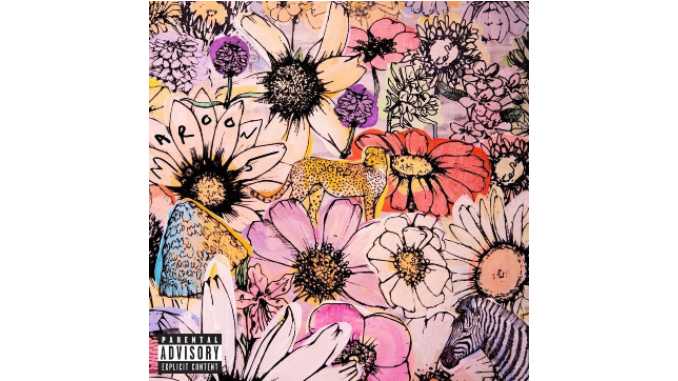The new Maroon 5 album JORDI makes me fear for the future of civilization. Throughout its 11 tracks, Adam Levine and his “band” (series of producers) make a compelling argument for simulation theory, sharing songs that sound convincingly enough like music while every facet of humanity has been polished away, leaving only a series of cheap hooks designed to be played at a Five Below. As we continue to cascade into the climate of A.I.-produced music and our lives are being further distilled by social media companies into algorithms every day, we must ask ourselves complicated questions about the value of human creativity in modern art, lest we lose it entirely. On JORDI, Maroon 5 present the apocalypse of true mediocrity—a flaccid smattering of pop trends that have long since passed and melodies so transparently halfhearted, it barely sounds like a person even made them.
Levine, now probably more famous as a TV game show host than as a musician, sucks the presence out of almost every track on the album with his squeaky, often 645AR-like falsetto. Once, he led a band that made satisfying, sexy adult contemporary hits like “This Love” and “Makes Me Wonder”—but sadly, this is a post-”Moves Like Jagger” society, and we have to live with the consequences of that. The sexy swagger that characterized the band is gone and replaced with … what? Single and album opener “Beautiful Mistakes” sounds like pop music-shaped air—featuring the warm guitar strums that dominated the airwaves back in 2017 and a tiresome “nah nah nah” vocal melody, the track is only saved by a Megan Thee Stallion feature on which the rapper sounds restrained by the lifeless instrumental. On “Lost,” 42-year-old Levine does his best imitation of 19-year-old pop star Billie Eilish’s style of songwriting and production, and it ends up being one of the most successful songs on the album as a result.
JORDI’s best moments invariably come when somebody else is taking the reins—there is a noticeable drop in quality whenever a feature shifts back to the airless void of Levine’s honking falsetto. On “One Light,” for example, when the song transitions from the bandleader’s lazy references to a “world gone crazy” and tired vocal delivery into Zimbabwean singer/producer Bantu’s verse, the stark contrast in the energy levels between the two performers is palpable and serves only to frame the album in a bleaker, flatter perspective. “Remedy,” a sickeningly derivative track that features Stevie Nicks, really makes you wonder, “Damn, I wonder how much they paid Stevie Nicks.” Attempting to borrow from the Fleetwood Mac playbook, i.e., anthemic and catchy vocal hooks with simple but effective instrumentals, the song’s flat production doesn’t dare any risk and thus fails to be convincing.
Several moments on JORDI are simply confusing. On “Seasons,” Levine does his best Post Malone impression, sounding embarrassingly out of place. “Lovesick” feels like a sentence made from an iPhone’s predictive text feature: technically legible, but wonky and discomforting. Sounding more like a first pass at a project than a finished demo, every element of “Lovesick,” from the lifeless production to its boilerplate lyrics and melody, sounds blithely uninspired. “Memories” is a track only notable for being almost as viscerally annoying and ubiquitous as their Kendrick Lamar-featuring hit “Don’t Wanna Know.”
With the album meant to serve as a tribute to the band’s late manager and Levine’s childhood friend, there could have been a meaningful opportunity to return to what made the band unique and celebrate what set them apart to begin with. Instead, Levine chose to lean into his image as America’s sexless mannequin, through which some of the laziest pop music of the decade can be safely pumped out onto the masses. Eventually, the day will come in which the subtleties of what makes pop music great will be deemed fully unnecessary for mass consumption, and as the A.I. that inevitably will replace Maroon 5 ceaselessly creates and regurgitates the same trends back at their audience, subsisting fully off the bile of its own design, it will sound virtually indistinguishable from JORDI.
Jason Friedman is a Paste editorial music intern located in Philadelphia and they’re not afraid of ghosts.




